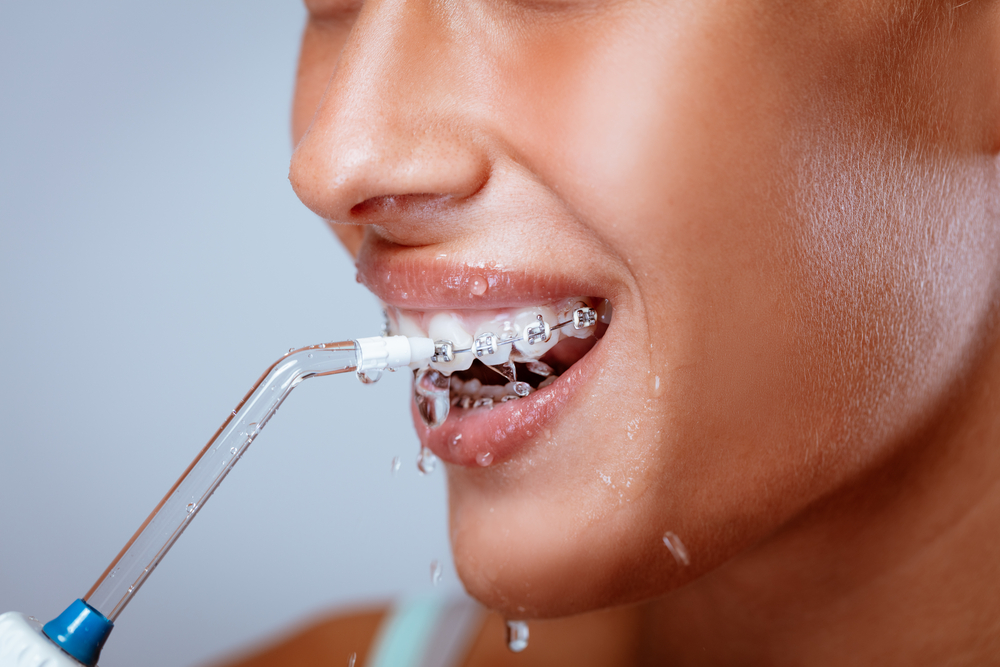
Dentists always recommend flossing at least once per day. Even though floss can reach 40% of tooth surfaces our toothbrushes can’t reach, many people still don’t floss. The most common reason why flossing is avoided is that it’s difficult, and it can take a while. Water flossers can be a great alternative to traditional string floss, especially for those who have undergone cosmetic dentistry treatments. However, water flossers are not for everyone.
Read on to learn which type of floss is the ideal choice for you.
How Waterpiks and Water Flossers Work
A water flosser works by shooting out a thin, pressurized stream of water. This type of floss uses much less hand coordination, as you hold the device over the surface you’d like to clean, and the water does the work for you. Some models additionally come with interchangeable bristles for removing biofilm and cleaning between braces.
Advantages of Electric Flossers
Water flossing, or water picking, utilizes a particular machine that directs a stream of water into the mouth and gums. Rather than scraping the teeth to remove plaque, water flossing uses the water’s pressure to massage the gums and push the food away from the teeth. A Waterpik is easy to use, especially for people with braces or other types of dental work like permanent or temporary bridges. The massage action can also improve gum health and reach areas that can’t be reached with traditional floss.
Disadvantages of Water Flossers
Perhaps the main disadvantage of a water flosser is the cost. A Waterpik can be expensive to purchase and will need space to be stored. It requires access to electricity and water, making it difficult to use outside of the home or traveling if you do not choose a cordless option.
Advantages of String Floss
There are several advantages when it comes to traditional flossing. For one, it is a very efficient method when it comes to removing left behind food and debris from between your teeth. The cost of floss is very low, and it is easily accessible from any pharmacy or grocery store. Lastly, a container of dental floss doesn’t take up much room, and it can be used anywhere.
Disadvantages of Traditional Floss
Despite the many advantages of using traditional dental floss, there are also a few disadvantages. Some patients may find reaching specific areas of the mouth difficult. Flossing can also cause minor bleeding, especially if you are not using the correct technique. When using traditional floss, be sure to monitor any worsening gum sensitivity and discuss any persistent discomfort with your dentist.
Which Flosser Is More Effective?
Many studies have compared water flossing and traditional string floss. Overall, the American Dental Hygienists’ Association recommends water flossing over string dental flossing. Water flossers are effective at removing plaque and reducing gingival bleeding more than string floss. A water flosser is also particularly useful for those with limitations, including arthritis or braces, where maneuvering string floss can be difficult.
Every Person’s Preferences Are Different
Whether you decide that a water flosser or traditional floss is right for you, the most important thing is that you floss every day regardless of the method you choose. Like many other things, your preference for which type of floss you prefer is your choice to make. Brushing alone is not an acceptable way to clean your teeth and gums, so regardless of whether you prefer a water flosser or string floss, make sure you floss!
For a personalized recommendation on which type of floss is the best option for your stunning smile, contact Hoffman Dental Care to schedule an exam.




